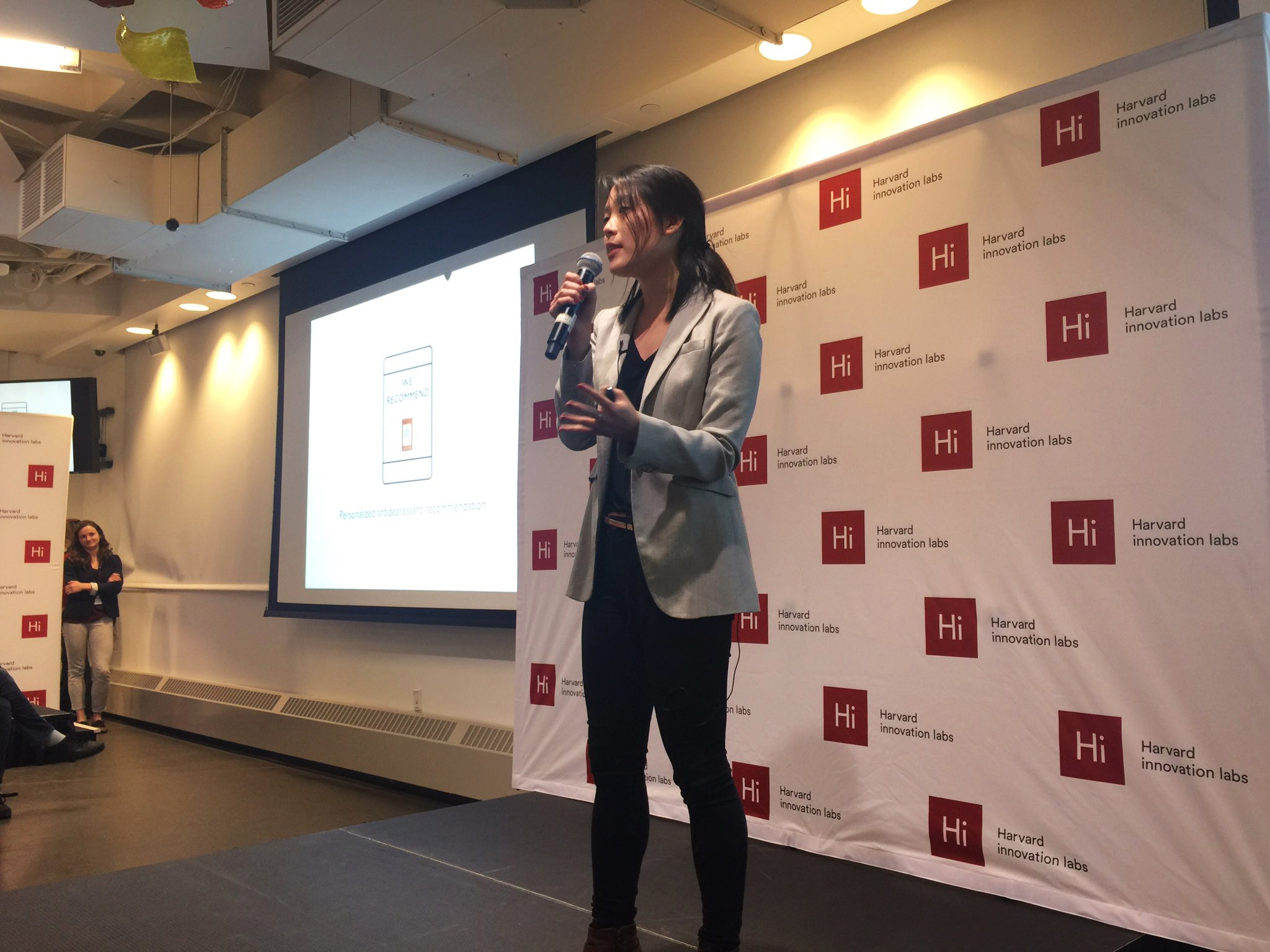
Last week, Yale won not only The Game but the Pitch-Off.
Spring, a mental health care startup led by a Yale team, won the second Harvard-Yale Pitch-Off, hosted at the Harvard Innovation Lab on Nov. 17. Developed by April Koh ’16, Adam Chekroud GRD ’20 and Abhishek Chandra ’16, Spring is a platform which connects people with depression to treatment options. The team beat two other Yale teams and three teams from Harvard to be named the event’s winner.
According to the event’s website, the Harvard Innovation Lab and the Yale Entrepreneurial Institute each sent three seed-stage startups to pitch before a five-person panel of investors and entrepreneurs. A seed-stage startup is one that is in its initial stage, usually pre-revenue, according to Koh. She said participating teams pitched for five minutes to the judging panel, in addition to an audience of about 200 members of the public, which included students from both schools. Judges then asked questions, and during their deliberations, the audience also contributed questions.
“The teams are really fighting for honor and glory,” said Alice Ly, the assistant director for health and sciences at the Harvard Innovation Labs, who was involved in organizing the pitch-off. “There are no financial winnings at stake. This is really a celebration — we call it a competition but really it’s a celebration and showcase of the great work that the students are doing at the two schools and how each of our centers are there to help them refine and articulate how they present to a broader audience.”
According to Priscila Bala, the director of the Mentor Network at the YEI, both Harvard and Yale agreed that only legacy teams — teams who had gone through each school’s respective venture acceleration program — could qualify for the competition. At Yale, this program is the YEI’s summer fellowship, an eight-week summer boot camp in which teams receive $15,000 in funding, mentorship and pitching preparation. Yale teams chosen for the pitch-off this year were successful teams from the summer fellowship. This represented a change in how teams were chosen from the first iteration of the pitch-off, which took place in April this year.
“In previous [iterations], if we ended up having more eligible teams than we have slots, we would invite a panel of external supporters and each team pitches in front of them,” Bala said. “That board would choose who those three teams would be. But as luck would have it, we didn’t have to have that same selection process.”
Bala added that teams who had raised more than a seed round of capital — roughly $1 million — were ineligible to participate, and that preference was given to current students.
The winning team, Spring, uses artificial intelligence to provide treatment recommendations for mentally ill patients.
“I think that something that really differentiates this pitch competition is really the strength of the network that was present there,” Koh said. “I’ve never had the opportunity to pitch in front of investors who are specialized in health care and do seed investments, so the very appropriate types of investors were chosen for the judge panel. They were asking very insightful questions and it was an exciting opportunity for me.”
According to the evaluation rubric for judges, the evaluation criteria included the market needs for the product or service, the viability of the business model and the quality of their business pitch. Individuals affiliated with both Harvard and Yale sat on the judging panel.
Other participating teams from Yale include Chops, a company that makes handcrafted beef jerky using humanely treated grass-fed beef, and the Connecticut Bail Fund, a nonprofit organization that pays bail for individuals who can’t afford it.
Patrick Sullivan ’18, co-director of the Connecticut Bail Fund, said that during events like the Harvard-Yale Pitch-Off, the Connecticut Bail Fund is in an interesting position. According to Sullivan, many of the organizations in pitch-offs have been for profit, different from their own financial model. Regardless, he appreciated the opportunity to be in a space with different ideas and feedback, “because it pushes you to think in a different way about your own organization.”
“I noticed there was something there [at the pitch-off that] was something more than just a friendly rivalry, but a willingness to help each other succeed,” said Luke Sellers ’17, the co-founder of Chops.
The first Harvard-Yale Pitch-Off took place in April. This time, audience members were able to tweet in questions directly to participating teams. Ly said that moving forward, she and the organizing team is thinking of different ways to structure the event.
“A lot of pitch competitions are out there in which teams pitch for money, but that’s not the main objective for this event,” Ly said. “We want to embrace the celebratory aspect of it and make it a fun event, really playing up the fun aspect of it. That’s the direction we’re thinking of going with it.”
Applications for next year’s YEI summer fellowship is Jan. 26, 2017.







